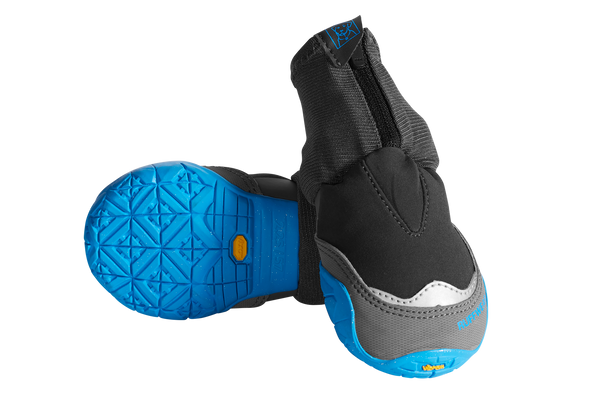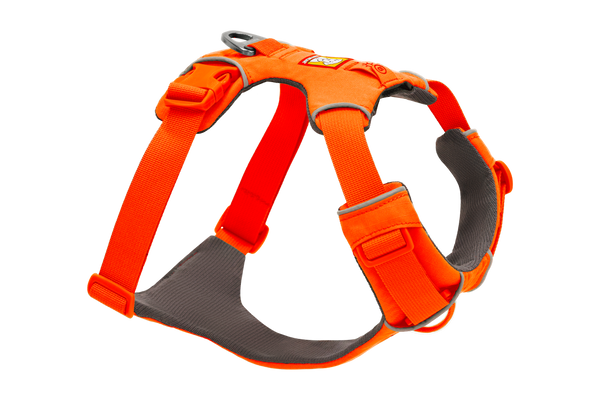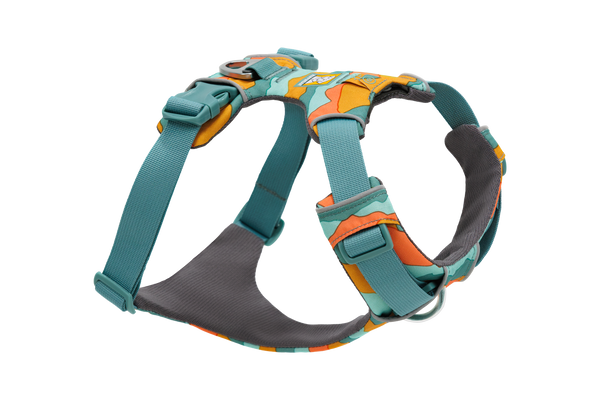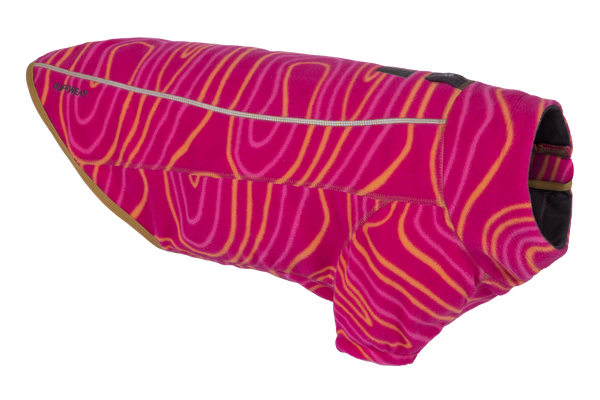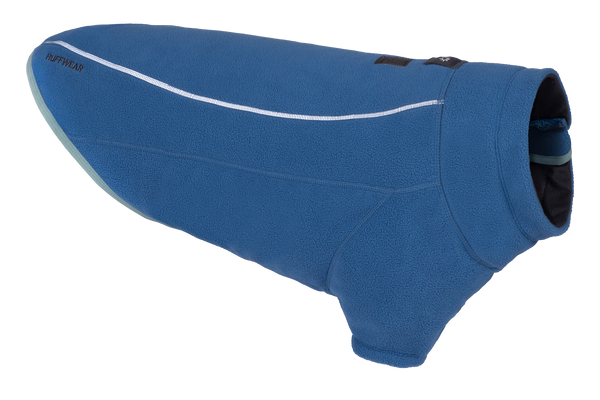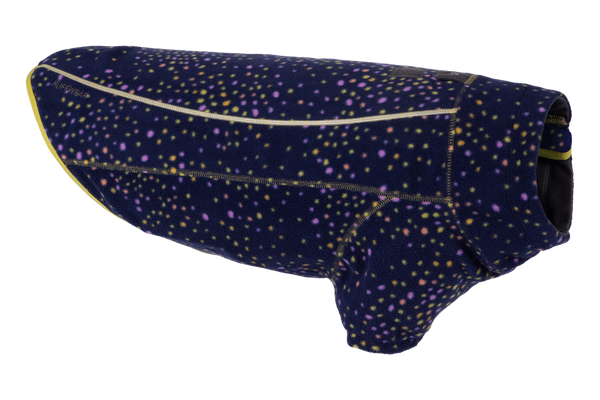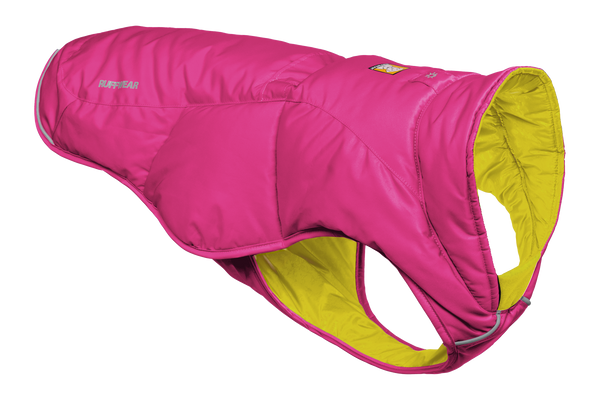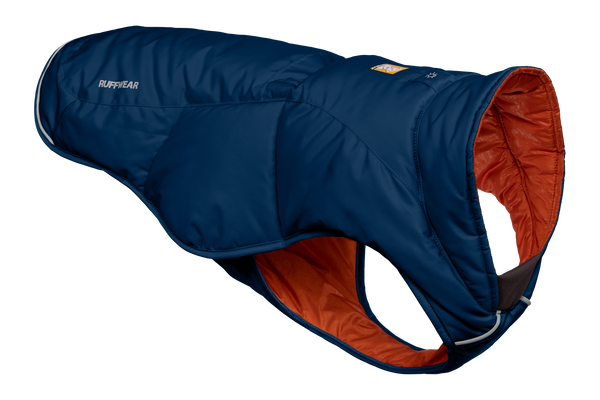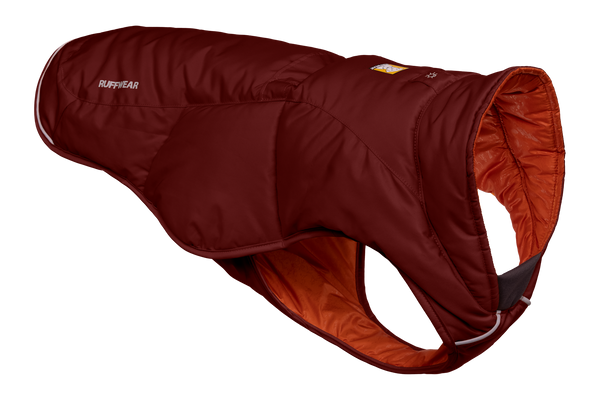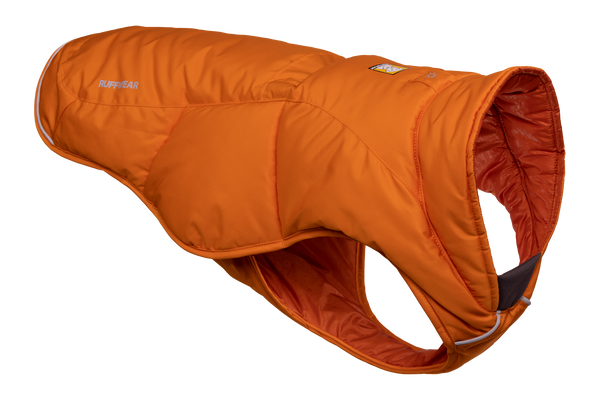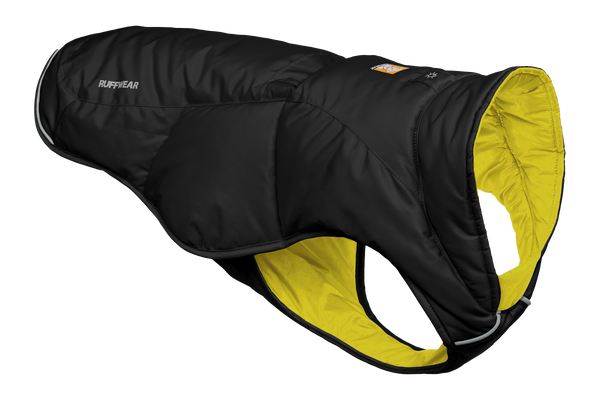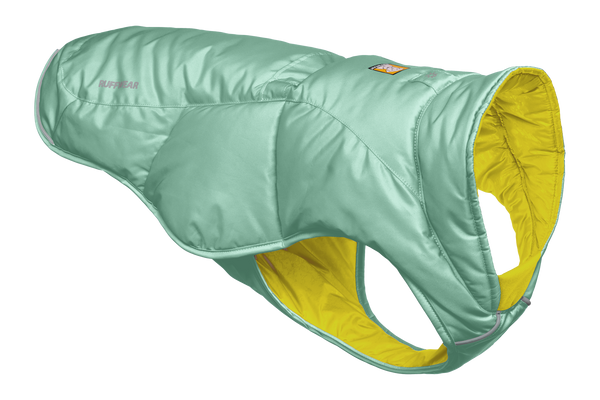The Size is Right: How to Measure for Your Dog's Gear
Gear that's comfortable, fits well, and performs well depends on two things: extensive design and trail testing (that's us!), and the right size and fit (that's you!)
From dog harnesses to boots, getting the sizing right ensures your furry companion stays comfortable, protected, and ready for any adventure. In this comprehensive guide, we'll walk you through the process of measuring for your dog's gear, helping you find the perfect fit for every outdoor excursion.
Sizing For Harnesses, Apparel & Packs
To size your pup for our harnesses, apparel, and packs, you’ll need to measure your dog’s girth. This will be the widest part of your dog’s chest just behind the front legs.
How to Measure Your Dog's Girth
To measure your dog’s girth, you can use tailor's tape — or if you don't have tailor's tape, you can use a long string and measure it later. Take your tape and wrap it around the widest part of your dog's rib cage, which again, is usually the chest area right behind their front legs.

Harness, Apparel & Pack Size Chart
| Size | XXXS | XXS | XS | S | M | L | XL |
|---|---|---|---|---|---|---|---|
| Girth (in) |
9 - 13 in |
13 - 17 in | 17 - 22 in | 22 - 27 in | 27 - 32 in | 32 - 36 in | 36 - 42 in |
| Girth (cm) |
23 - 33 cm | 33 - 43 cm | 43 - 56 cm | 56 - 69 cm | 69 - 81 cm | 81 - 91 cm | 91 - 107 cm |
Sizing For Boots
Ensuring your dog's boots fit properly is essential for their comfort and enjoyment during outdoor adventures. Ill-fitting boots can cause discomfort, rubbing, and even injury to your trail buddy’s paws.
How to Measure Your Dog's Paws
To figure out what size boot your dog needs, you'll need to measure your dog's paw width. You'll need a pen, a piece of paper, and a ruler or tailor's tape measure. Start by measuring your dog’s front paw. Place the paper under one of the paws, then lift up the opposite paw. Hold the pen straight up and down for an accurate measurement and mark the widest part of the paw, then measure the distance between the two lines.

Boot Size Chart
| Size (in) | 1.50 in | 1.75 in | 2.00 in | 2.25 in | 2.50 in | 2.75 in | 3.00 in | 3.25 in |
|---|---|---|---|---|---|---|---|---|
| Size (mm) | 38 mm | 44 mm | 51 mm | 57 mm | 64 mm | 70 mm | 76 mm | 83 mm |
Sizing For Puppies
How to Size for a Growing Dog
Puppies grow quickly and that means their size might still be changing. While your pup’s growth will depend on its breed, many larger dogs may not hit their full size and weight till around 12 to 18 months.
We recommend sizing based on your puppy’s current measurements to make sure they are getting a comfortable and functional fit. If their gear is too large or small, you might see some chafing or slipping.

If your growing pup is truly between two sizes, choose the larger size. For example: a 3-month-old puppy with a 17-inch (43 cm) chest girth would be right between XXS (13-17 in / 33-43 cm) and XS (17-22 in / 43-56 cm) harness sizes. We recommend sizing up to the XS since their current girth fits within that size range AND the larger size will give them room to grow.
For collars, you should make sure that it fits snugly but not too tight, allowing you to fit two fingers comfortably between the collar and your dog's neck. This ensures that it's secure enough to prevent slipping off but doesn't restrict your dog's movement or cause discomfort. When fitting a martingale collar, ensure it's adjusted so that when relaxed, it comfortably fits around the neck without choking, yet tightens appropriately when tension is applied, preventing escape without causing harm. Always monitor your pup’s collar fit regularly, especially during periods of growth or weight change.
If your pup is growing out of their gear like crazy, think about purchasing their gear through Re:Play, Ruffwear’s dedicated site for used dog gear. You can find gently used gear at a great price, plus, you’re helping keep dog gear in play and out of landfills.
Does Ruffwear Make Gear for Small Dogs?
Yes, Ruffwear makes gear for small dogs. We know that there are big adventures ahead for your small canine explorer, and we create gear to keep up with them. Most of our apparel and harnesses are available down to an XXS (girth 13 - 17 in / 33 - 43 cm).

The Hi & Light™ Harness, our lightweight dog harness, is available in an even smaller size, XXXS (girth 9 - 13 in / 23 - 33 cm). The Hi & Light™ Collection (harness, leash, collar) is a popular collection for smaller dogs because of the minimal and lightweight design.
Ultimately, no matter what gear you choose for your dog, making sure its sized right is key to getting the most out of it. Once you nail that down, all you have left to do is gear up and get out there.
